Do you have multiple forms of outstanding debt, maybe from a couple of credit cards or an old auto loan?
Are the interest rates too high? And is tracking multiple monthly payments stressing you out?
Then a debt consolidation loan might be the move for you.
Debt consolidation loans are special types of personal loans that are specifically used to pay off existing debts. Let’s say you have $3k in credit card debt and $2k left on an auto loan, both at interest rates above 10%. If you pay them off with a $5k debt consolidation loan at 8%, you can save time, stress, and potentially a ton of interest.
But which debt consolidation loans are best? What do the best lenders have to offer, and which one is right for you and your situation?
Let’s investigate the best debt consolidation loans.
What’s Ahead:
- Overview: Best Debt Consolidation Loans
- LightStream: Best Overall (Low Rates, Zero Fees)
- Upstart: Best for New, Limited, or Poor Credit
- LendingClub: Best for No Credit Check
- SoFi: Best for Borrowers with Limited Credit History
- Best Egg: Best for Borrowers Earning $100k or More
- Marcus by Goldman Sachs: Best for Borrowers with Excellent Credit
- How Do Debt Consolidation Loans Work?
- Should You Get a Personal Loan to Consolidate Debt?
- How to Choose the Best Debt Consolidation Loan
- An Alternative Way to Consolidate Debt: Balance Transfers
- The Bottom Line
Overview: Best Debt Consolidation Loans
- Best for low rates and zero fees (for qualified borrowers): LightStream
- Best for new, limited, or poor credit: Upstart
- Best for no credit check: LendingClub
- Best for borrowers with good credit (680+), but limited credit history: SoFi
- Best for borrowers earning $100k+: Best Egg
- Best for borrowers with very good credit (730+): Marcus by Goldman Sachs
LightStream: Best Overall (Low Rates, Zero Fees)
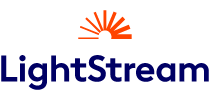
- Estimated APR: 5.24% to 19.99% (w/ AutoPay)
- Loan amounts: $5,000 to $100,000
- Minimum credit score: 660
- Pros: Extremely low rates, zero fees, easy to apply and make payments online, big bank stability and customer support
- Cons: High minimum credit score required, moderately high minimum loan amount of $5,000, no option to prequalify
LightStream is the Mercedes-Benz of lenders, with high-quality products across the board — but a (slightly) high bar for entry.
Let’s talk about qualifications to start. For a debt consolidation loan (or any type of loan from LightStream) you’ll need a minimum 660 credit score and several years of credit history to apply. There’s also no risk-free prequalification tool, so you’ll want to know for sure that your credit is good enough before applying since a rejection will hurt your credit. (Here’s how to check your credit score for free.)
Lastly, LightStream doesn’t loan less than $5k, so this isn’t the place to pay off just a few Gs of credit card debt.
But if you do qualify, you’ll enjoy the “Mercedes” experience of super low rates starting at 5.24% (with AutoPay), a robust platform and support provided by Truist, and zero fees.
Needless to say, if you qualify and need to borrow at least $5k, LightStream should be high on your list. And if you’re interested in borrowing from LightStream but need to bump up your credit first, check out our guide, How to Improve Your Credit Score, Step by Step.
Upstart: Best for New, Limited, or Poor Credit
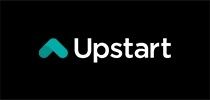
- Estimated APR: 5.60% to 35.99%
- Loan amounts: $1,000 to $50,0000
- Minimum credit score: 300 (Upstart focuses on job/income/education)
- Pros: Virtually no credit score requirement (only that you have one), wide range of loan amounts, no early repayment fees, prequalification tool
- Cons: Only two loan terms (3 and 5 years), origination fees range anywhere from 0% to 10%, still requires a good job with decent income
Similar to how a lot of colleges have stopped looking at SAT scores, Upstart isn’t too interested in your credit score. To them, credit scores aren’t a fair, even-handed metric for assessing a borrower’s ability to pay back a loan. I mean, what if you just graduated or immigrated for an awesome job, but this is your first loan ever?
For that reason, Upstart’s sophisticated AI algorithm focuses on other factors like your job, income, and education level to qualify you. If it likes what it sees, you can get loans as low as 5.60% with no origination fee.
But offers can certainly vary. While Upstart welcomes all kinds of borrowers, rates can quickly rise to the double digits — as can the origination fee.
Thankfully, Upstart lets you prequalify with no risk to your credit score. And if your awesome new job lets you pay off your loan faster, there’s no early repayment fee, either.
Learn more/apply or read our full Upstart review.
LendingClub: Best for No Credit Check
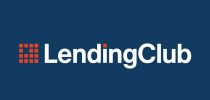
- Estimated APR: 8.30% to 36.00%
- Loan amounts: $1,000 to $40,000
- Minimum credit score: 600
- Pros: Loans starting at just $1,000, check your rates without impacting your credit
- Cons: High origination fees of 3% to 6%, late fees as high as 5%, restrictive repayment terms of just 3 or 5 years
In many ways, LendingClub is the opposite of LightStream. Instead of a big bank with high entry requirements, it’s a smaller, more welcoming lender with more to offer borrowers with less-than-ideal credit.
For starters, LendingClub lets you check your personalized rates in as little as two minutes without impacting your credit score. The minimum requirement is 600, and loans start at just $1,000.
That said, LendingClub’s relatively open arms come with some drawbacks. LC charges origination fees and they’re not small, ranging from 3% to 6%. It also charges late fees, so be sure to check the box for autopay. Lastly, LendingClub only offers two repayment terms: three or five years.
Learn more/apply or read our full LendingClub review.
SoFi: Best for Borrowers with Limited Credit History
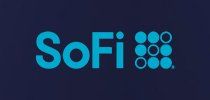
- Estimated APR: starting at 7.99% APR (with autopay discount)
- Loan amounts: $5,000 to $100,000
- Minimum credit score: 680
- Pros: Good rates, doesn’t require extensive credit history, $300 two-way referral bonus, helpful resources like unemployment protection and financial guidance
- Cons: High credit requirement
SoFi is an interesting player in the lending space. In 2016 it launched under the slogan “this is the beginning of a bankless world.” Six years later, the company applied for a bank charter, with CEO Anthony Noto stating there’s no “better time” to be a bank.
To its credit, SoFi is becoming a bank to serve its customers better. Formerly P2P-only, SoFi can now originate loans itself and offer even lower rates and expanded services. At the moment, rates start at just 7.99% with terms ranging from two to seven years and zero origination fees. Having launched as a student loan refinancing company, SoFi also doesn’t require an extensive credit history to apply like many others on this list.
In lieu of extended credit history, however, SoFi does require good (680+) credit, which may be too high a bar for many borrowers in need of debt consolidation. But if you fall into that niche of good credit, limited history, SoFi may be the lender for you — and be sure to find a friend or ask someone on Reddit for a referral code, since both of you will score a $300 bonus!
Learn more/apply or read our full SoFi review.
Best Egg: Best for Borrowers Earning $100k or More
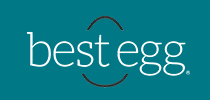
- Estimated APR: 5.99% to 29.99%
- Loan amounts: $2,000 to $50,000
- Minimum credit score: 640
- Pros: Super low rates, wide range of loan amounts
- Cons: Origination fees between 0.99% and 5.99%, no mobile app, high minimum income requirements ($50k min., $100k preferred), no prequalification tool, just two terms (3 or 5 years)
As a lender for debt consolidation loans, Best Egg exemplifies the phrase “rates are king.”
That’s because borrowing from Best Egg requires you to stomach a lot of caveats and drawbacks. The lender charges origination fees, there’s no prequalification tool so you can’t see your rates without dinging your credit score, and for debt consolidation loans, there are just two term options: three or five years.
Best Egg is also the first lender on this list to have pretty strict income requirements. The lender doesn’t broadcast this, but multiple sources have confirmed that the minimum annual income requirement is $50,000, and for the best possible rates, $100,000 is recommended.
If you can stomach all that, what do you get? Well, pretty dang good numbers. Rates for debt consolidation loans start at just 5.99%, which can save you so much interest on a five-figure loan that Best Egg’s other drawbacks may pale into insignificance.
Provided you qualify, Best Egg is worth an application.
Learn more/apply or read our full Best Egg review.
Marcus by Goldman Sachs: Best for Borrowers with Excellent Credit
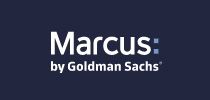
- Estimated APR: 6.99% - 24.99%
- Loan amounts: $3,500 to $40,000
- Minimum credit score: 730
- Pros: On-Time Payment Reward lets you defer one monthly payment, low rates, big bank stability and customer support, no origination or prepayment fees
- Cons: Super high credit requirement
Last but certainly not least, there’s Marcus by Goldman Sachs. Marcus is a relatively new product by Goldman Sachs, and clearly a direct response to the massive influx of emboldened fintech companies trying to topple the big banks.
To win, Marcus is trying to offer something sweeter.
To start, there’s a nice range of loan amounts from $3,500 to $40,000. Rates start at just 6.74% with the 0.25% autopay discount, terms range from three years all the way up to six with options in between, and there are zero origination or early repayment (aka prepayment) fees.
But perhaps the coolest feature of a debt consolidation loan from Marcus is the On-Time Payment Reward feature. Each time you make 12 on-time payments in a row, Marcus will let you defer one monthly payment (with 16 days’ notice). Marcus just tacks it on to the end of your term, with no additional interest accruing and no impact to your credit. They call it a “payment vacation,” and it could come in handy if you have a surprise bill or just want to go on a literal vacation.
The drawback to Marcus isn’t really a drawback, but multiple sources report that you need super-high credit (730+) to qualify.
Learn more or read our full Marcus by Goldman Sachs review.
Marcus By Goldman Sachs® Offer Terms and Conditions - Your loan terms are not guaranteed and are subject to our verification of your identity and credit information. Rates range from 6.99% to 24.99% APR, and loan terms range from 36 to 72 months. For NY residents, rates range from 6.99%-24.74%. Only the most creditworthy applicants qualify for the lowest rates and longest loan terms. Rates will generally be higher for longer-term loans. To obtain a loan, you must submit additional documentation including an application that may affect your credit score. The availability of a loan offer and the terms of your actual offer will vary due to a number of factors, including your loan purpose and our evaluation of your creditworthiness. Rates will vary based on many factors, such as your creditworthiness (for example, credit score and credit history) and the length of your loan (for example, rates for 36 month loans are generally lower than rates for 72 month loans). Your maximum loan amount may vary depending on your loan purpose, income and creditworthiness. Your verifiable income must support your ability to repay your loan. Marcus by Goldman Sachs is a brand of Goldman Sachs Bank USA and all loans are issued by Goldman Sachs Bank USA, Salt Lake City Branch. Applications are subject to additional terms and conditions. Receive a 0.25% APR reduction when you enroll in AutoPay. This reduction will not be applied if AutoPay is not in effect. When enrolled, a larger portion of your monthly payment will be applied to your principal loan amount and less interest will accrue on your loan, which may result in a smaller final payment. See loan agreement for details.How Do Debt Consolidation Loans Work?
A debt consolidation loan is one you take out to pay off multiple existing debts at once.
For example, let’s say you have:
- $5,000 on credit card no. 1 at 26.99% APR
- $1,000 on credit card no. 2 at 23.99% APR
- $4,000 left on your auto loan at 12% APR
That’s $10,000 worth of debt, rapidly multiplying due to their double-digit interest rates. Not a good place to be!
So to save money (and stress), what you might do is apply for a debt consolidation loan of $10,000 at a lower APR of just 9%. That way, you’ll save $1,000+ on interest and you’ll only have one fixed monthly payment to worry about.
Should You Get a Personal Loan to Consolidate Debt?
If you have multiple forms of high-interest debt, paying it all off with a single debt consolidation loan can help you:
- Save on interest payments
- Pay down your total debts more quickly
- Protect (and even improve) your credit score by lowering your debt-to-income ratio and lowering the risk of missed payments
- Focus on a single, fixed monthly payment
- Stay motivated by knowing the exact date you’ll be debt-free
That being said, debt consolidation loans aren’t magic bullets for eliminating debt. Here are some caveats and drawbacks to consider:
- High interest rates. Most debt consolidation loans are unsecured, meaning all but the most qualified borrowers will be looking at interest rates in the double digits. If you’re currently paying less than that, a debt consolidation loan may not make much sense.
- The trade-off of lengthy terms. Even if you qualify for a lower interest rate than you’re currently paying, you may still end up paying more interest in total if your term is longer than five years. Be sure to play with our Loan Payoff Calculator before committing to a new loan.
- Enabling bad habits. Debt consolidation loans also don’t address the spending habits that put borrowers in debt in the first place. In rare cases they exacerbate them, since suddenly being clear of credit card debt can sometimes encourage more spending.
- A balance transfer may be better. Finally, debt consolidation loans aren’t always your best option for clearing debt. In fact, a simple balance transfer card can offer you 0% APR and even a sign-up bonus, which we’ll discuss below.
How to Choose the Best Debt Consolidation Loan
The best debt consolidation loan is the simply the one that offers you the best combination of:
- APR
- Term length
- Loan amount
To find the best possible loan option, follow these steps:
- Do what you can to maximize your credit score before applying (but don’t wait too long, since you’re probably paying high interest).
- ID the loan amount you need.
- Play with our Loan Payoff Calculator to see which loan term is best for you based on the monthly payments you can afford.
- Apply to three to five lenders to find the best rates.
An Alternative Way to Consolidate Debt: Balance Transfers
Aside from a debt management plan (which have their pros and cons), the next best way to consolidate debt — even better than a loan, in many cases — is a balance transfer.
A balance transfer is when you move credit card debt from one card onto another to buy yourself time to pay it off at a lower interest rate. Many modern credit cards offer 0% APR on balance transfers for up to 21 months and/or a cash sign-up bonus for opening one, so the potential savings could be huge.
Let’s say you have $3,000 of debt on card no. 1 and $2,000 of debt on card no. 2. Between the two you’re paying an average 23.99% APR, which is both terrible and avoidable.
So you open a Chase Freedom Flex℠, move the $5,000 onto there for a 3% fee ($150), and now you have 0% Intro APR on Balance Transfers for 15 months to pay it off (19.74% - 28.49% Variable after intro period). Plus, if you spend $500 within 3 months of account opening on purchases, you’ll get a $200 cash back bonus, plus other rewards.
The caveat to balance transfers is that they might max out your credit limit, which can hurt your credit score. And if you don’t pay them off in time, you’re hammered by insanely high credit card APR again. So there are definitely pros and cons.
Read more: How Do Credit Card Balance Transfers Work?
The Bottom Line
If you do your research and get the right one, a debt consolidation loan can save you plenty of time, stress, and interest. It may also save your credit score, which can literally save you tens of thousands in the long run when you apply for a bigger loan like a mortgage.
Featured image: pathdoc/Shutterstock.com


